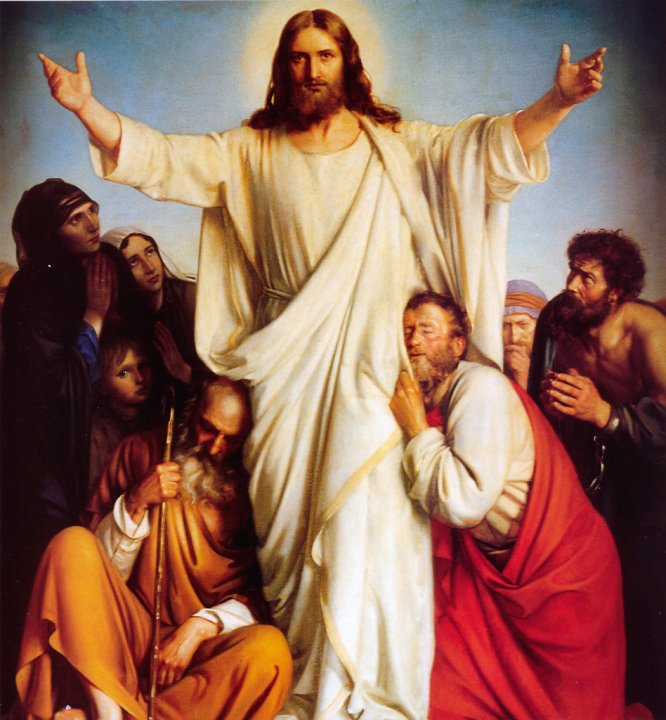3rd Sunday of Advent: Year- B
Gaudete Sunday
1st
Reading: Is. 61: 1-2. 10-11: I exult for joy in the Lord.
2nd Reading: 1 Thess: 5: 16-24: May you all be kept
safe, spirit, soul, and body, for the coming of the Lord.
Gospel: John: 1: 6-8. 19-28: There stand among you-unknown to
you-the one who is coming after me.
Jesus the Light of the World: The Special Witness of John the
Baptist:
John
the Baptist’s sole purpose on earth was to witness and to bear testimony to
Christ, the Light of the world. His purpose stands as a dynamic example for every
believer to bear a witness to Christ as John the Baptist did with humility and
obedience to the Will of God.
1. The inquiry of the delegation and the
replies given by John the Baptist:
The official delegation sent by the religious authorities of Jerusalem did not come
with good intentions. The crowd followed John because of his preaching and
baptism at the river John. The Jewish leaders were worried and angry about him
seeing the religious movement without taking them into account. So they asked
him three questions:
a. First question: Are you the Christ?
He denied emphatically, “I am not the Christ.” Christ means “the anointed one”
or “the Messiah”.
b. Second question: Are you, Elijah? He
said, “I am not Elijah.”
c. Third question: Are you the prophet?
He replied, “No.” Moses announced in Deut. 18: 15: about the “the Prophet” or
“the Messiah” would become a king as their leader in Israel. They had just
repeated their first question in another form. John expressed exactly “who he
was” and “what he had come to do.”
Now
they asked a real question: “Then why are you baptizing if you are not the
Christ, and not Elijah and not the prophet?” (Jn 1: 25). John gave the
inspiring answer which was moving. “I baptize with water...he is standing among
you...I am not fit to undo his sandal strap (Jon 1: 26-27).” Here we see his
total humility and witness to Christ. So he allowed his disciples to follow
Christ, Andres, and John followed Christ (Jn 1: 35-39).
2. The replies John gave to the Jewish
leaders reveal to us the kind of person that he was:
a. He was a profoundly humble person: At
the sight of Jesus, John realized not just his littleness but his nothingness.
Whereas we try to appear more than what we are.
b. John had understood his vocation
well: He learnt God’s plan for him through his prayer and fast in the desert
and determined to carry out those plans with his discernment.
c. John had tremendous respect and
love for Jesus: “He must grow greater, I must grow smaller” (Jn 3: 30). He realized, being the eldest one, no
jealousy, and no pride in his life.
3. Our vocation as Christians is similar
to that of John the Baptist:
What
would be our answers to the Jewish leaders if we were in the place of John? The
questions are put for us today and we try to give the possible answer:
a. Who are you?
b. What are you? What is the purpose of
your life?
c. What do I think of myself? What do
people think that I am? What does God think about me?
The answer is very simple: “I am a Christian;
the purpose of my life is to follow Christ faithfully and to lead people to
him. I am his messenger as John the Baptist and other disciples of Jesus.”
In the second reading, Paul invites us to carry out our task joyfully as
Christians, since we can count at all times on God’s help who will not fail
us: “Be happy at all time, pray constantly, give thanks to
God for all things...! God has called and He will not fail you (1 Thess. 5: 18.
23).
Thought: The
servant and messenger of God are not sent forth by people, but by God, is a man
of high calling and mission of enormous responsibility and accountability. The
servant’s primary purpose is: to lead people to believe in the Good News of
Jesus Christ, Son of God, the Light of the world.
